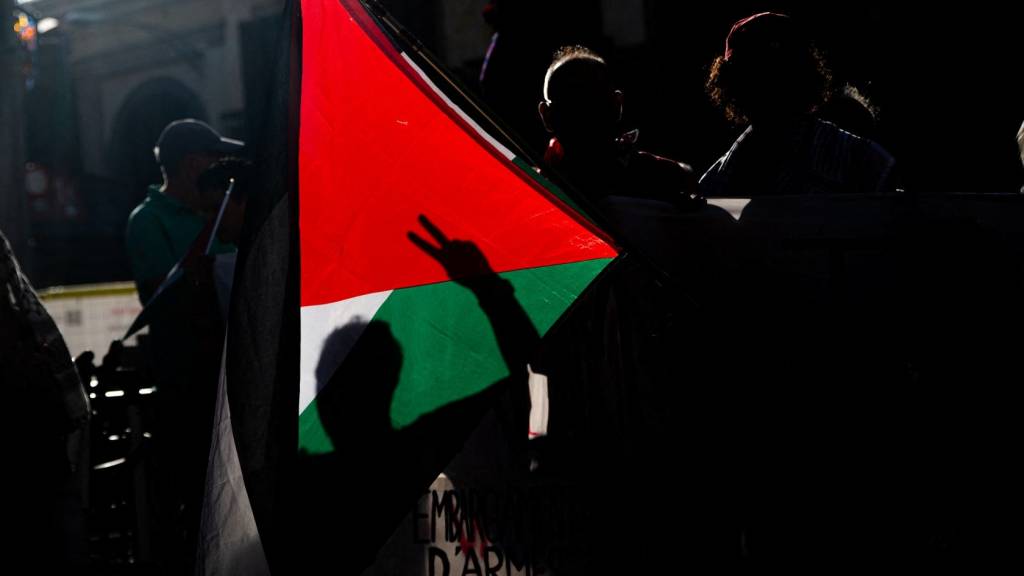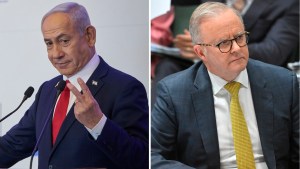Australia faces a defining moment in its foreign policy. Recognition of Palestinian statehood is more than a symbolic gesture; it is a principled decision that affirms Australia’s commitment to the rule of law and the right of self-determination under the UN Charter.
The recognition of Palestinian statehood has been in the making for a long time. The 1993 and 1995 Oslo Accords, which led to the formation of the Palestinian Authority (PA) with limited civic jurisdiction, were supposed to serve as a stepping stone to statehood. But Israeli-Palestinian talks have stalled for decades while Israel expands its illegal settlements in the West Bank, consistently and systematically chipping away at the territory under the PA’s authority.
The dynamic has changed dramatically in recent months. The Israeli response to the October 7 attack by Hamas has been grossly disproportionate. Israel has flattened the densely populated Gaza Strip and imposed a total blockade on Gaza that has prevented the delivery of essential food, water and medicine to the trapped population. In an ironic twist of history, Israel’s decision to continue its military campaign in defiance of global public opinion and a gross neglect of its legal duties, i.e. responsibility for the safety of a population under its rule, has turned initial global sympathy for Israel into gasps of disbelief. The world has had enough.
Related Article Block Placeholder
Article ID: 1217065
Prime Minister Anthony Albanese stated that recognising the state of Palestine is designed to end the war. The two-state solution has been a long-standing policy in Australia. But it had been tied to a negotiation peace process that required mutual consent by Israel and the PA on the eventuality of a future Palestinian state. The political leadership in Israel under Prime Minister Benjamin Netanyahu have made it clear they have no interest in a sovereign Palestinian state on Israel’s borders. This presents a diplomatic deadlock, because it makes a future Palestinian state contingent on the goodwill of its occupying power.
The immediate impact of recognising Palestine on the starving Gazan population is likely to be minimal, beyond a moral boost. Israel continues to act with impunity as it blocks the delivery of essentials to Gaza and prepares to remove the local population by force, a policy that is widely seen as ethnic cleansing.
Independent. Irreverent. In your inbox
Get the headlines they don’t want you to read. Sign up to Crikey’s free newsletters for fearless reporting, sharp analysis, and a touch of chaos
By continuing, you agree to our Terms & Conditions and Privacy Policy.
This behaviour is enabled by the United States. Washington has shielded Israel against international criticism, using its veto power in the UN Security Council (UNSC) to shoot down resolutions it deems hostile. Only on very rare occasions has Washington allowed the UNSC to publicly take Israel to task. In 2016, the US abstained from a vote on a UNSC resolution that called for a stop to the expansion of Israeli settlements in the occupied West Bank, calling them illegal and a “flagrant violation” of international law.
This abstention was out of character for the United States and reflected president Obama’s desire to bring US policy more in line with international expectations, which at that time viewed Netanyahu’s settlement expansions as detrimental to the prospects of peace in the Middle East.
Australia’s announcement that it is recognising the state of Palestine will not be welcomed in Washington. Australia’s position is a significant departure from the US policy but is unlikely to disrupt the alliance. The alliance with the United States is grounded in a shared global strategic perspective and set of values. President Trump has shaken global confidence in the US commitment to the values of democracy and the rule of law that have served as the foundation of the liberal world order, but the damage is not irreversible. Even more importantly, the United States and Australia see eye-to-eye in the Indo-Pacific. Their shared threat perception in the region is very likely to override any disagreement over Israel and Palestine.
Related Article Block Placeholder
Article ID: 1216788
The United States has the deciding vote on the future of Palestine. The future state needs the approval of the UNSC and the UN General Assembly to join the United Nations as a sovereign entity and enjoy full statehood rights and responsibilities. With 140 UN member states already recognising the Palestinian state, and key US partners and Western allies — for example, France, Ireland, Norway and Australia — declaring their plan to recognise Palestinian statehood at the September UN General Assembly, Washington finds itself marginalised.
Australia’s coordination to join the chorus on Palestine gives more force to the international demand for justice and could prove the needle that tips the balance. Political attitudes on Israel have shifted in Washington, and President Trump could be persuaded that persevering with this agenda at the expense of alienating the world may be too high a price.
As Foreign Affairs Minister Penny Wong noted, Australia was among the first to vote for the creation of a state for the Jewish people and also one for the Palestinians. It is only apt that Australia follows through with its commitment to the two-state solution by recognising the sovereignty of the Palestinian state and presenting the case to Washington.
Will Australia’s recognition of Palestine make any difference?
We want to hear from you. Write to us at letters@crikey.com.au to be published in Crikey. Please include your full name. We reserve the right to edit for length and clarity.



